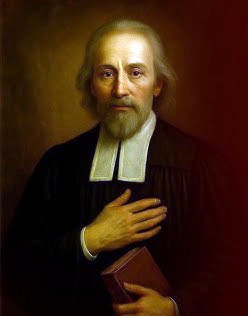
Today’s Leader of Faith
JOHN PHILIP BOEHM
Home Call : 29 April 1749
Founder of Reformed Church in Pennsylvania, Church Organizer, Reformed Minister, Educator, Missionary.
John Philip Boehm (1683–1749) was a pioneering German Reformed minister who played a foundational role in establishing the Reformed Church in Pennsylvania, which later became part of the Reformed Church in the United States. In 1725, Boehm began serving as an unordained pastor for congregations in Falkner Swamp, Skippack, and Whitemarsh. Recognizing the need for structured governance, he drafted a constitution for the church that established a consistory-based church government, adopted the Heidelberg Catechism, and set guidelines for discipline and financial management. This constitution became the model for other Reformed congregations in the region. Between 1725 and 1740, Boehm founded or served at least 13 congregations across southeastern Pennsylvania, traveling extensively to minister to these communities. He was instrumental in founding and leading the Coetus (a synod for Reformed congregations), helping to unify the churches in Pennsylvania.
Boehm was born on November 24, 1683, in Hochstadt, Germany. His father, Philip Ludwig Böhm, was a schoolmaster and later a Reformed minister, but his second marriage and controversial behaviour led the family to move frequently. He worked as a schoolmaster, starting in Lambsheim in 1706 and later in Worms in 1708. In 1715, he returned to Lambsheim as a teacher until 1720. That year, he immigrated to Pennsylvania and settled near Philadelphia in Whitpain, where he continued his work as a schoolmaster.
Boehm settled in Whitpain, Pennsylvania, where he became a Bible “reader” for Reformed congregations due to a shortage of ministers. In 1725, he was called to pastor several communities, founding the German Reformed Church of the United States. travelled extensively in southeastern Pennsylvania, preaching, conducting catechetical training, and administering sacraments, despite facing dangerous terrain and encounters with Native Americans. Boehm was later ordained by the Low Dutch congregation of the Amsterdam Classis in 1729, placing his churches under the Reformed Church of Holland. Despite the religious freedom in Pennsylvania, Boehm’s ministry struggled due to sectarian harassment and financial difficulties. In 1746, Michael Schlatter, a reformed minister, was sent to assist Boehm, and in 1747, they organized the first Coetus convention, revising Boehm’s constitution.
Boehm passed away at the age of 65. His death marked the end of a pivotal chapter in the development of the Reformed Church in Pennsylvania, which he had helped establish and nurture. He was buried at Boehm’s Church in Blue Bell, Pennsylvania. This church, which he had founded, remains an important historical site and serves as a lasting tribute to his ministry. His grave lies beneath the church’s altar, signifying his central role in the church’s foundation and his enduring influence on the congregation.
— John Michael, Rajahmundry
